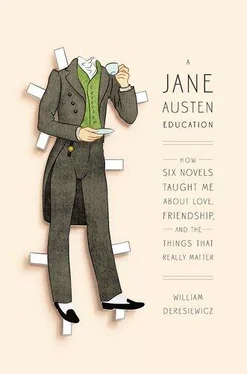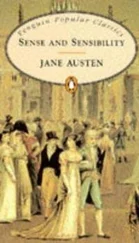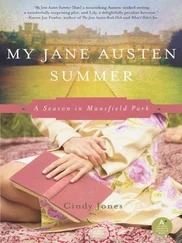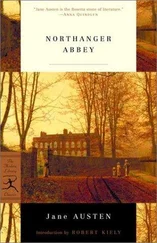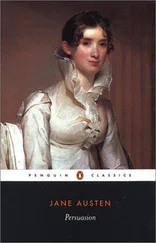Austen understood, even cherished, the passions of youth, but she also knew that that is all they are. “There is something so amiable in the prejudices of a young mind,” said an older character of Marianne, “that one is sorry to see them give way to the reception of more general opinions.” It’s natural to believe the things that Marianne and I had believed about love, but it’s also necessary, if melancholy, to give them up. Austen had respect for Elinor, but it was perfectly clear that the character she loved the most in Sense and Sensibility was her sister. Yet just because she loved her so much, she loved her enough to want to see her happy. And for Austen, as I already knew, the key to happiness was letting life surprise you.
The only thing that’s shocking about the way young lovers act, I realized now, is how predictable it is. Of course Marianne and Willoughby fell in love. It’s what everyone knew they were going to do; it was what they knew there were going to do, even before they met each other. But making a mature decision, patiently feeling and thinking your way toward mutual respect and regard and esteem, accepting the responsibility of challenging and being challenged, refusing both the comforts of fantasy and the cynicism of calculation—that is the really radical, the really original, the really heroic move. That is the true freedom; that is the way you lift yourself above the bondage of impulse and cliché. The marriages that ended Austen’s novels, I now went back and saw, were always unexpected. Marianne and Willoughby were supposedly perfect for each other, but the men that Austen’s heroines actually married were always the “wrong” person: the wrong class, the wrong age, the wrong temperament. Emma, Elizabeth, Anne—nobody around them saw their happiness coming. Not even, most importantly, themselves.
True love takes you by surprise, Austen was telling us, and if it’s really worth something, it continues to take you by surprise. The last thing that lovers should do, despite what Marianne and I imagined, is agree about everything and share all of each other’s tastes. True love, for Austen, means a never-ending clash of opinions and perspectives. If your lover’s already just like you, then neither one of you has anywhere to go. Their character matters not only because you’re going to have to live with it, but because it’s going to shape the person you become.
For Charles Musgrove, who married Anne Elliot’s whiny, trivial sister Mary in Persuasion, “a woman of real understanding might have given more consequence to his character, and more usefulness, rationality, and elegance to his habits and pursuits. As it was, he did nothing with much zeal but sport; and his time was otherwise trifled away.” That was a quiet tragedy, but it was a tragedy nonetheless. With a better choice of mate, even John Dashwood, Elinor and Marianne’s repulsive half brother, might well have been saved: “Had he married a more amiable woman, he might . . . have been made amiable himself; for he was very young when he married, and very fond of his wife. But Mrs. John Dashwood was a strong caricature of himself;—more narrow-minded and selfish.” “A strong caricature of himself”: wanting to be with someone who’s exactly like you, I now saw, isn’t really love; it’s only self-love. When Marianne finally did find a husband, Austen made sure to give her a man who was as different from her as possible.
And that was the most momentous revelation of all. Not only does your happiness depend upon your choice of mate, your very self depends upon it—your character, your soul. Love is more than just good feelings. A friction-free relationship, supposing that such a thing were even possible, would, I now saw, be a desert. Conflict is good, disagreements are good, even fights can be good. These were astounding new ideas to me. Committing yourself to someone doesn’t have to limit your growth; it can be the door to perpetual growth. Austen had finally done what I never imagined possible. She had started to make me feel like getting married might not be such a terrible thing.
Yet there was still one lesson more for me to absorb. Of all of Austen’s beliefs about love, the hardest one to accept was this: not everyone is capable of it. The evidence was overwhelming, once I was willing to face it. John Dashwood was not, his wife was not, and neither, I realized, were many other characters in Austen’s books—most of the Elliots, in Persuasion, most of the Bertrams, in Mansfield Park, and lots of others everywhere: the cold ones, the grasping ones, the ones who thought only of themselves. The essential requirement for love, in Austen’s view—before the work, before the courage—is simply to possess a loving heart. And not everyone, she thought, is born with one of those.
That was what she meant when she assured her niece, while giving her romantic advice, “I do still think you very capable of being really in love.” On hearing of Captain Benwick’s second engagement in Persuasion , Anne Elliot thought, “He had an affectionate heart. He must love somebody.” The disposition to love is the thing. If you have it, someone will come along to satisfy it. If you don’t, it doesn’t matter what happens. People can grow, Austen thought, but they can’t fundamentally change.
By the same token, I now recognized, the great maker of fictional matches did not believe that most marriages work out very well. People marry for the wrong reasons, or they choose the wrong person, or circumstances are against them, or they just stop trying, or they aren’t the kind of people who should marry in the first place. After a long, perilous process of maturation and mutual discovery, her heroes and heroines could look forward to a happy future, but of the unions her novels actually showed us (parents and neighbors and so on), the overwhelming number—something like sixteen out of twenty—were failures.
So where did that leave me? Austen reassured her niece, but what would she have said to me? Did I have a loving heart, or did all of my breakups, all of my bitterness, all of my failures to stay committed mean that I was one of those people who shouldn’t even think of getting married? Maybe I had had the right idea from the start; maybe I’d been trying to tell myself something. After six years and six novels, these were the questions to which Jane Austen had brought me. But the answers, I knew, would not be found in any book.
There was one person, we can be sure, who did have a loving heart—Austen herself. That is the great question that hangs above her life. Not, how a person who never married could have known so much about love. The mysteries of genius are enough to explain that conundrum. But rather, why a person who knew so much about love, and had such a clear capacity for it, never did get married herself.
She might have been about to once, when she was Elizabeth Bennet’s age. The record of Austen’s letters opens like a novel. She is twenty, and writing to her sister in a rush of high spirits about the ball she has gone to the night before:
Mr. H. began with Elizabeth, and afterwards danced with her again; but they do not know how to be particular. I flatter myself, however, that they will profit by the three successive lessons which I have given them. You scold me so much in the nice long letter which I have this moment received from you, that I am almost afraid to tell you how my Irish friend and I behaved. Imagine to yourself everything most profligate and shocking in the way of dancing and sitting down together. I can expose myself, however, only once more, because he leaves the country soon after next Friday, on which day we are to have a dance at Ashe after all. He is a very gentlemanlike, good-looking, pleasant young man, I assure you. But as to our having ever met, except at the three last balls, I cannot say much; for he is so excessively laughed at about me at Ashe, that he is ashamed of coming to Steventon, and ran away when we called on Mrs. Lefroy a few days ago.
Читать дальше
